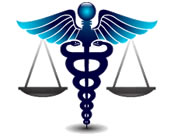

Medical Malpractice Connections

- Access for Laparoscopic Surgery - Negligence
- Anesthesia Negligence
- Breast Cancer Negligence
- Cardiac Surgery Negligence
- Cardiology Negligence
- Common Bile Duct Injury - Negligence
- Critical Care Negligence
- Gastroenterological Negligence
- Hospital Negligence
- Neurosurgery Negligence
- OB-GYN Negligence
- Orthopedic Negligence
- Psychiatric Negligence
- Radiologic Negligence
- Surgical Negligence
- Thoracic Surgery Negligence
- Vascular Surgery Negligence
Thoracic Surgery (Chest Surgery)
The Procedure
Thoracic Surgery includes surgery in the chest other than the heart. This most commonly includes the lungs and esophagus, and often deals with cancer.
Risks
Despite the surgeon’s best efforts, recurrences of the cancer can occur. Also, esophageal leaks after removal of the esophagus may occur, leading to infection, sepsis, need for further surgery, and death. Other complications include:
- Early death
- Chronic ventilator support necessity
- Wound infections
- Serious bleeding
Medical Negligence
The above mentioned risks and complications are known to happen with esophagectomy (removal of the esophagus) as well as surgery on the lung. Such complications do not necessarily constitute deviation from the medical standard of care. The following examples however may be considered as medical negligence:
Esophageal Cancer
- Substandard technique in the construction of the connection between the stomach and the esophagus. This may be the result of stapler failure (malfunction) and/or poor surgical technique.
- Failure to timely diagnose and treat a complication from the surgery despite clinical evidence of such.
- Delay in diagnosis of a cancer, given appropriate signs and symptoms specific to the diagnosis.
Lung Cancer
- Failure to test when the patient exhibits signs and symptoms of the disease.
- Failure to react promptly to biopsy findings.
- Failure to recommend appropriate treatment options that could either cure the patient or make him/her more comfortable if in a terminal condition.
- Failure to monitor a patient with a family history of lung cancer.
- Misplacing or losing a patient’s medical records.
- Failure to refer a patient to a specialist.
| Top of page |
| Home | Medical Malpractice Attorneys | Medical Experts | Medical Negligence | Services | Statute of Limitations | About Us | Contact Us |